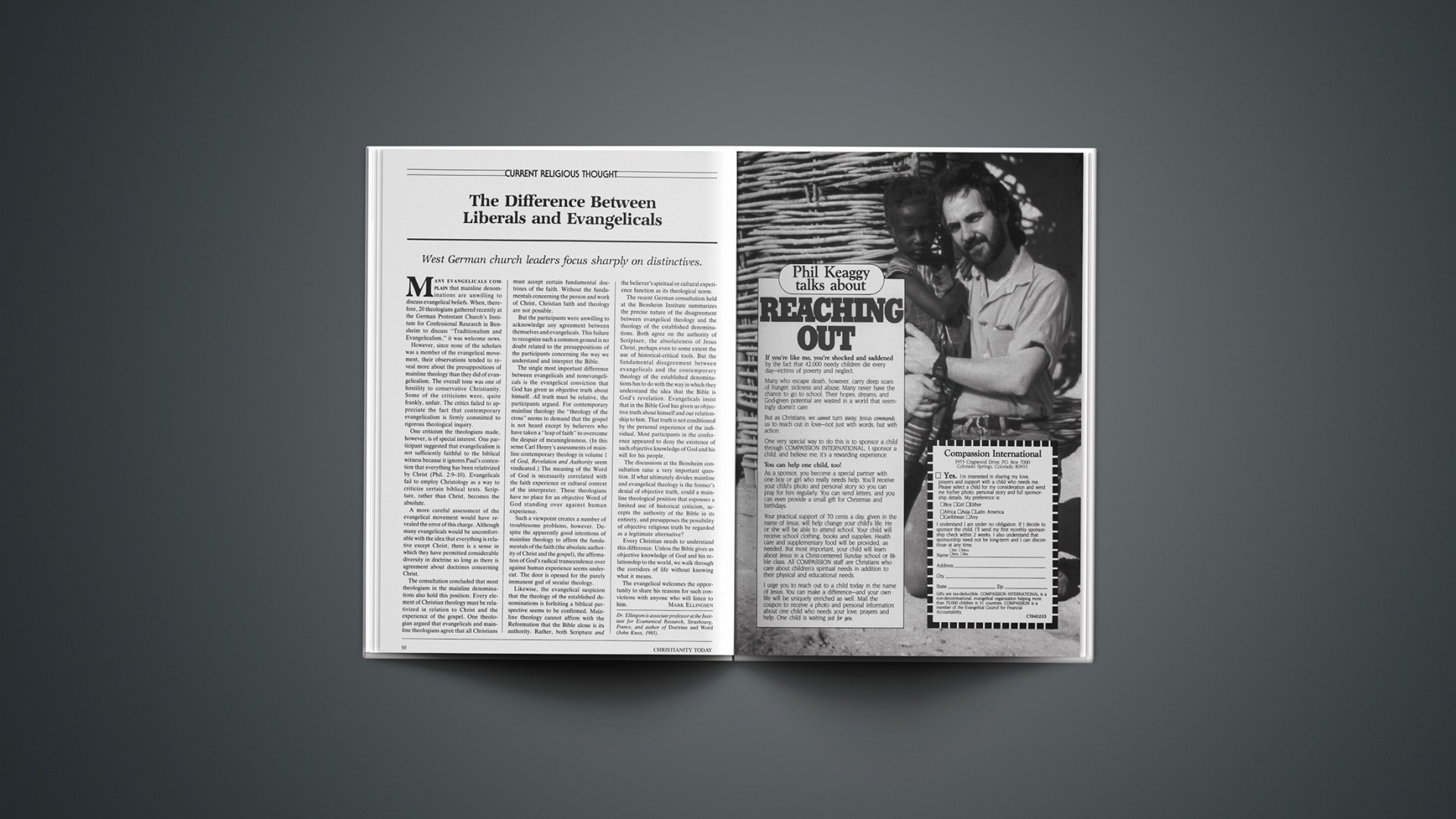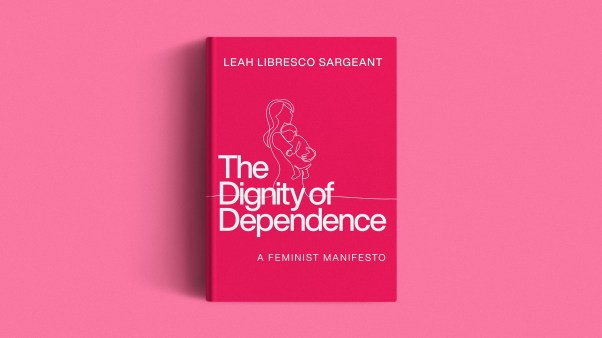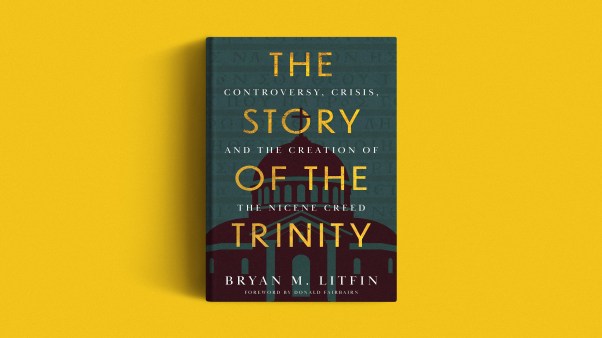West German church leaders focus sharply on distinctives.
Many evangelicals complain that mainline denominations are unwilling to discuss evangelical beliefs. When, therefore, 20 theologians gathered recently at the German Protestant Church’s Institute for Confessional Research in Bensheim to discuss “Traditionalism and Evangelicalism,” it was welcome news.
However, since none of the scholars was a member of the evangelical movement, their observations tended to reveal more about the presuppositions of mainline theology than they did of evangelicalism. The overall tone was one of hostility to conservative Christianity. Some of the criticisms were, quite frankly, unfair. The critics failed to appreciate the fact that contemporary evangelicalism is firmly committed to rigorous theological inquiry.
One criticism the theologians made, however, is of special interest. One participant suggested that evangelicalism is not sufficiently faithful to the biblical witness because it ignores Paul’s contention that everything has been relativized by Christ (Phil. 2:9–10). Evangelicals fail to employ Christology as a way to criticize certain biblical texts. Scripture, rather than Christ, becomes the absolute.
A more careful assessment of the evangelical movement would have revealed the error of this charge. Although many evangelicals would be uncomfortable with the idea that everything is relative except Christ, there is a sense in which they have permitted considerable diversity in doctrine so long as there is agreement about doctrines concerning Christ.
The consultation concluded that most theologians in the mainline denominations also hold this position. Every element of Christian theology must be relativized in relation to Christ and the experience of the gospel. One theologian argued that evangelicals and mainline theologians agree that all Christians must accept certain fundamental doctrines of the faith. Without the fundamentals concerning the person and work of Christ, Christian faith and theology are not possible.
But the participants were unwilling to acknowledge any agreement between themselves and evangelicals. This failure to recognize such a common ground is no doubt related to the presuppositions of the participants concerning the way we understand and interpret the Bible.
The single most important difference between evangelicals and nonevangelicals is the evangelical conviction that God has given us objective truth about himself. All truth must be relative, the participants argued. For contemporary mainline theology the “theology of the cross” seems to demand that the gospel is not heard except by believers who have taken a “leap of faith” to overcome the despair of meaninglessness. (In this sense Carl Henry’s assessments of mainline contemporary theology in volume 1 of God, Revelation and Authority seem vindicated.) The meaning of the Word of God is necessarily correlated with the faith experience or cultural context of the interpreter. These theologians have no place for an objective Word of God standing over against human experience.
Such a viewpoint creates a number of troublesome problems, however. Despite the apparently good intentions of mainline theology to affirm the fundamentals of the faith (the absolute authority of Christ and the gospel), the affirmation of God’s radical transcendence over against human experience seems undercut. The door is opened for the purely immanent god of secular theology.
Likewise, the evangelical suspicion that the theology of the established denominations is forfeiting a biblical perspective seems to be confirmed. Mainline theology cannot affirm with the Reformation that the Bible alone is its authority. Rather, both Scripture and the believer’s spiritual or cultural experience function as its theological norm.
The recent German consultation held at the Bensheim Institute summarizes the precise nature of the disagreement between evangelical theology and the theology of the established denominations. Both agree on the authority of Scripture, the absoluteness of Jesus Christ, perhaps even to some extent the use of historical-critical tools. But the fundamental disagreement between evangelicals and the contemporary theology of the established denominations has to do with the way in which they understand the idea that the Bible is God’s revelation. Evangelicals insist that in the Bible God has given us objective truth about himself and our relationship to him. That truth is not conditioned by the personal experience of the individual. Most participants in the conference appeared to deny the existence of such objective knowledge of God and his will for his people.
The discussions at the Bensheim consultation raise a very important question. If what ultimately divides mainline and evangelical theology is the former’s denial of objective truth, could a mainline theological position that espouses a limited use of historical criticism, accepts the authority of the Bible in its entirety, and presupposes the possibility of objective religious truth be regarded as a legitimate alternative?
Every Christian needs to understand this difference. Unless the Bible gives us objective knowledge of God and his relationship to the world, we walk through the corridors of life without knowing what it means.
The evangelical welcomes the opportunity to share his reasons for such convictions with anyone who will listen to him.
Dr. Ellingsen is associate professor at the Institute for Ecumenical Research, Strasbourg, France, and author of Doctrine and Word (John Knox, 1983).










